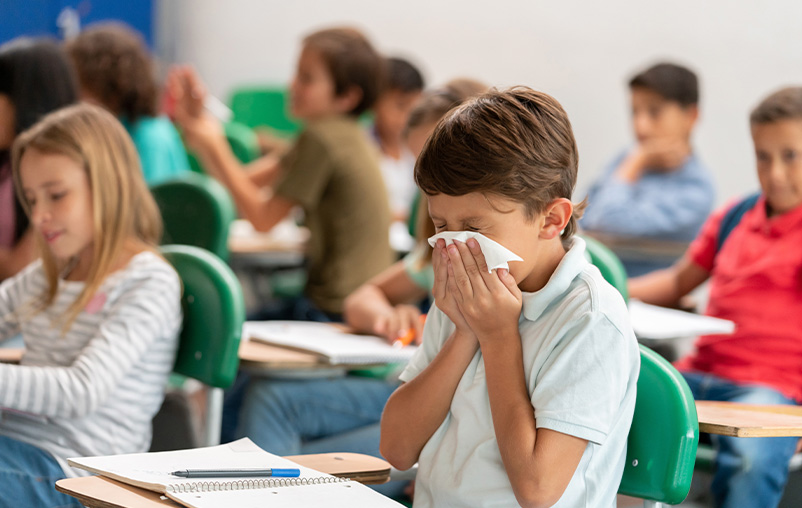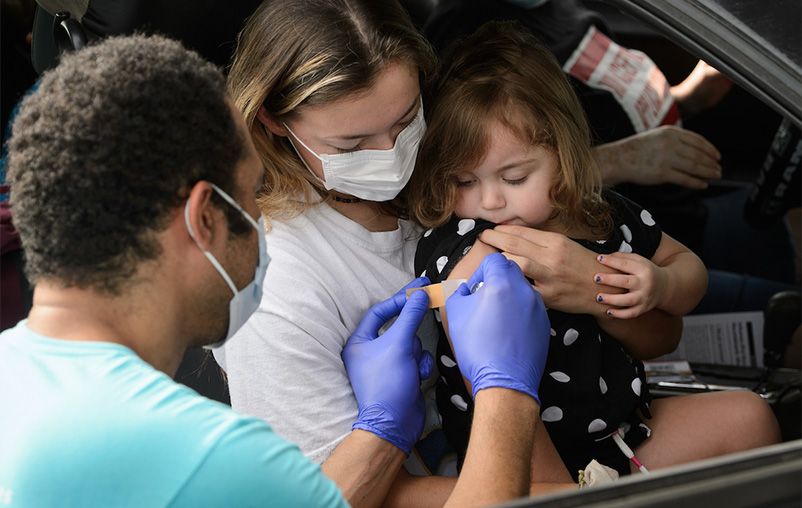How worried should we be about the delta variant?
The delta variant has quickly become the predominant strain here in the United States, much like other parts of the world. As recently as two weeks ago, the CDC announced it represents about 83% of all new COVID cases. One of the concerns relative to delta is there certainly seems to be some indication that it is more transmissible and can spread more rapidly.What can we do to reduce infections and hospitalizations?
All of the things we have been doing for over a year and a half continue to work. Masking, distancing, hand hygiene and good ventilation. But one of the most important things we can do to prevent infections is to become fully vaccinated.Talk about breakthrough infections. What do we know about vaccinated people who tested positive?
The vaccines are incredibly effective at preventing the most serious complications of COVID-19, which are hospitalizations and deaths. They also are very good at preventing symptomatic disease in general.
However, with the delta variant, we are seeing more cases of people with symptomatic disease who have been fully vaccinated. The good news is they tend to be less severely ill and very few of those individuals end up in the hospital.
Is there any information yet about which vaccinated group is more vulnerable to breakthrough infections, such as whether they got the Moderna or Pfizer vaccine?
There aren’t really good data to select one vaccine above another one relative to the delta variant. Those studies are ongoing. The good news is that a full vaccination series, whether it’s two doses of Moderna or Pfizer or even a single dose of the Johnson & Johnson vaccine is still the best protection against severe illness.What is the risk for this variant mutating into something that is not covered well by the current vaccines?
As long as the virus continues to circulate, there’s always the possibility of new variants. Over time, viruses can develop mutations naturally, and some of those may select for advantages, which means they could become more transmissible or they could be more severe.
Since this virus has been circulating worldwide for some time now, that’s a lot of virus particles that have an opportunity to potentially mutate over time. Our best protection to minimize that or to ultimately eliminate that is to really focus on getting as many people vaccinated as possible.
With the positivity rate rising again, should people reconsider travel plans, indoor dining, and gathering in groups?
It’s probably a good idea to always evaluate the risks versus the benefits while the pandemic continues. That could include travel depending on the nature of your travel, whether you’re traveling alone or on public transportation, what your destination might be, and your ability to protect yourself beyond vaccination in terms of wearing masks or distancing.
(You should also evaluate those factors in) situations where you might find yourself in gatherings indoors. All those things you should probably consider along with your immunization status as to whether you need to change those plans or find other ways to add to your layers of protection.
Should people get a different vaccine on top of another? i.e. would someone who got the Pfizer shot get additional protection if they get a J&J shot?
Right now the recommendation is to complete a full vaccine series with a single vaccine, whether it be two doses of Pfizer, two doses of Moderna or even a single dose of the J&J. There aren’t a lot of data yet that indicate the additional protective benefits of mixing vaccines, although they are ongoing.
There are studies comparing the efficacy of the combination of Pfizer and AstraZeneca, and some more recent ones included the Moderna vaccine and one yet to be authorized in the U.S. called Novovax. So they’re looking at combination vaccine studies right now.
Are children likely to carry the virus to others?
We know that children can carry the virus. Some of the studies that were done over the past year indicated that children of younger ages tend to transmit the virus less than children of older age groups like teens or even older toward the adult ages. They can carry the virus, they can certainly transmit the virus, but the youngest children appear to be those less likely to transmit it than some of the older children.
Talk about the American Academy of Pediatrics’ recent recommendation on children wearing masks in schools.
The American Academy of Pediatrics recently came out with the recommendation for in-person learning in schools, as well as that everyone who is eligible should get vaccinated. They have also added that they support a layered protective approach, which means that anyone ages 2 years and older should also wear a mask regardless of their vaccination status.





